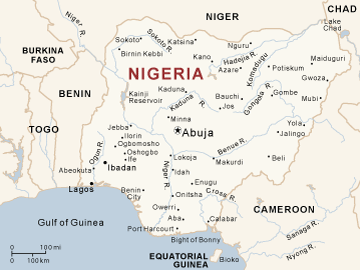By Asmau Ahmad with Agency Report
Nigeria’s achievements in the eradication of polio would top the agenda at the 24th African Union (AU) Summit on Jan. 30 in Addis Ababa, Ethiopia. The Director of Press and Public Relations, Federal Ministry of Health, Mrs Ayotunde Adesugba, disclosed this to press men in Abuja on Monday.
Adesugba said that the entire continent’s polio eradication efforts would also be reviewed at the summit. According to her, the two-day summit will provide a unique and historic opportunity for the leaders of Africa to express their strong commitment to deliver a polio-free continent.
She said deliberations at the forum would encourage the last remaining countries and their leaders to redouble their efforts in the final stages of eliminating polio.
“The 24th Africa Union Summit will be held in the capital of Ethiopia, Addis Ababa, from 30 to 31 January 2015 with all African Heads of Government expected to be in attendance.
“One of the main themes of the Summit, `The Development Towards Africa’s Agenda 2063’, focuses on preparing Africa for its future, building upon the progress now underway and effectively learning lessons from the past.
“A polio-free Africa is one of the best legacies that the people of Africa, its leaders, and the African Union can pass on to the next generation,” she said.
Adesugba said the outstanding achievements of Nigeria in the eradication of polio would be one of the focal points in the deliberations at the forum. According to her, tremendous progress was achieved at the end of December 2014 with 87 per cent reduction of the Wild Polio Virus Type 1 (WPV1) burden and 78 per cent reduction in geographic spread of the virus.
She said the Wild Polio Virus Type 3 (WPV3) has not been reported in Nigeria for 23 months, which is both exciting and cheering. The spokesperson said the genetic clusters circulating in Nigeria had also declined from eight in 2013 to one in 2014, representing an 88 per cent reduction. She said the feat was achieved as a result of over two year’s meticulous improvement in the programme with award winning innovations.
“Since the WHO declared Polio eradication as a public health emergency of global significance, Nigeria has continued to respond with an equal degree of urgency.
“It has since made efforts to stop the transmission churning out streams of innovations and approaches to reach persistently missed children.
“It may be recalled that Nigeria, one of the countries that has never interrupted the transmission of indigenous Polio Virus experienced a huge resurgence of polio cases in 2004 after the cessation of polio campaigns in some states in the North.
“Following a 10-year battle with resurgence of the paralysing disease, only six confirmed WPV1 in two states were recorded in 2014 compared to 50 cases in nine states for the same period in 2013.
“With the date of onset of the latest WPV case occurring on 24th July, 2014, which means that the country has not recorded any new case in six months,” Adesugba.




